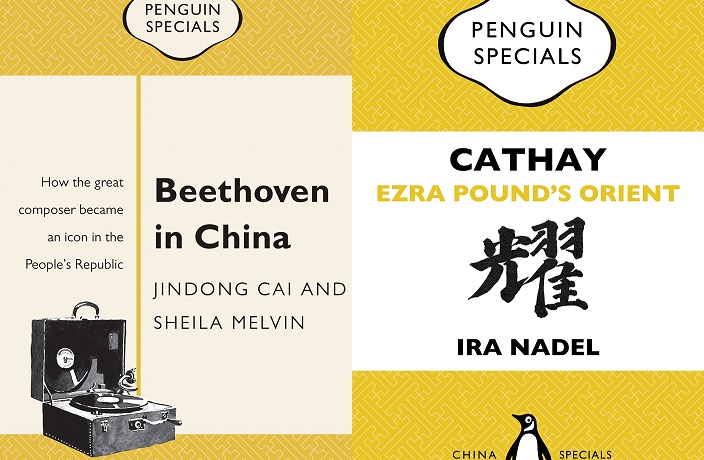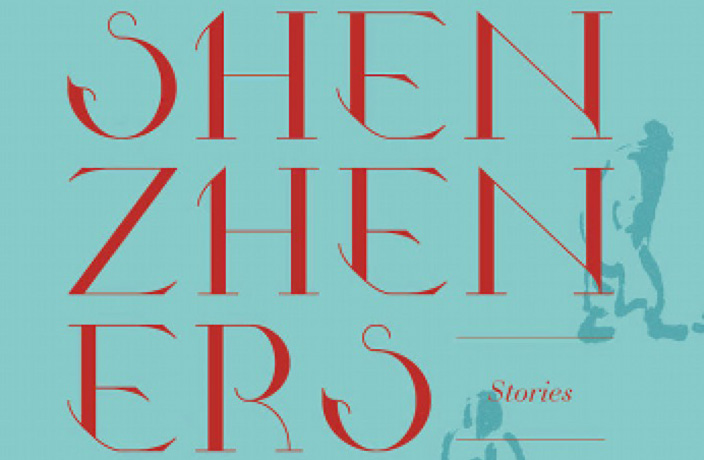The Penguin China Specials series of short books is a joy, with writers including Paul French, Jonathan Fenby and Robert Bickers producing long essays of the kind that might appear in the New York Review of Books. Two new books in the series each address a specific example of cross-cultural artistic pollination, with lines of influence going both ways between China and the West.
Beethoven in China by wife-and-husband team Sheila Melvin and Cai Jindong explains how Beethoven has been seen over the years as variously a Confucius figure, a state-approved revolutionary, a banned representative of the bourgeoisie and a diplomatic salve.
 A Beethoven biography that first captured the imagination of the Chinese public a century ago remains required reading in all middle schools.
A Beethoven biography that first captured the imagination of the Chinese public a century ago remains required reading in all middle schools.
As Cai and Melvin put it, “the world over, Beethoven’s music has been appropriated by saints and sinners alike, its perceived universality making it fair game for any cause. But there is no parallel to the depth and breadth of Beethoven’s integration into the culture, politics and private passions of China.”
Cai, a Beijing-born conductor with the Stanford Symphony Orchestra, writes of how Beethoven was embraced by China’s early twentieth-century intellectuals who hoped to enlist his values in bringing change over eighty years after the composer’s death.
The power of the music, and the potency of Beethoven’s depiction as a man who did not bow to his supposed betters and overcame great hardship including deafness, made him a powerful patron saint for young people outraged by China’s betrayal in the Treaty of Versailles in 1919 and hungry for reform.
Beethoven’s music was even performed at the funeral of Sun Yat-sen, first president of the Republic of China, in 1925.
The first live performances in Concession-era Shanghai didn’t admit Chinese people, until an Italian conductor forced an end to the racist policy. But his popularity really took off when writer and critic Fu Lei translated Nobel Prize-winner Romain Rolland’s Vie de Beethoven. (Fu also standardized the Chinese transliteration of the composer’s name as 贝多芬, Beiduofen).
Post-1949, especially after Mao’s dictum that “There is no such thing as art for art’s sake,” Beethoven’s position in China became more complicated.
“Mao’s speech was the opening shot in a decades-long debate between those who felt that Beethoven and classical music were a means of reform and those who saw them as a distraction, or even a deterrent, from revolutionary goals,” the book explains.
During the Great Leap Forward, the Central Philharmonic (already tasked with doing 1,200 performances a year) was given a week to produce a piece of music “far greater than Beethoven’s Ninth Symphony,” and the broadcast of Beethoven’s Fifth from Beijing in March 1977 was the proof to many that the Cultural Revolution really was over. Even today, Beethoven’s birthplace in Bonn is still a huge draw for Chinese tourists.
 Cathay: Ezra Pound’s Orient, by distinguished Canadian biographer and critic Ira Nadel, looks at cultural influence on a more refined scale.
Cathay: Ezra Pound’s Orient, by distinguished Canadian biographer and critic Ira Nadel, looks at cultural influence on a more refined scale.
In London in 1915, controversial American modernist Ezra Pound published Cathay, a 32-page book of translations of classical Chinese poetry. It was praised by great contemporaries like T.S. Eliot, Marianne Moore and William Carlos Williams, and W.B. Yeats was an admirer. Pound’s curiosity about the Orient was piqued by Herbert Giles’s A History of Chinese Literature, and he was taken in particular by the poems of Qu Yuan (the poet remembered during the Dragon Boat Festival each year) and later Li Bai.
Pound liked the irregular meter and the concentration of focus, and decided to make the translation a demonstration of his ideas about the modernist movement in the arts.
“The poems of Li Bai and others provided the intersection between East and West that redefined the modernist project.” Interestingly, he included one other translation, juxtaposing the Chinese verse with Anglo-Saxon text The Seafarer.
But was this translation at all? Pound did not speak much Chinese at the time. The texts he worked from had been translated from Chinese to Japanese to English. (In Cathay, Li Bai poems are attributed to Rihaku, the Japanese transliteration of his name.)
The answer, really, is that it doesn’t matter. The poems (the full text is reproduced at the end of the book) are lovely and surprising. As an introduction to Chinese poetry, they are hard to improve on.
Pound became increasingly eccentric and often unpleasant, a Fascist sympathizer in Italy who was jailed for treason by the Allies after World War II, and his work – most famously his epic poem The Cantos – became willfully obscure and difficult, though always with elements of brilliance.
Cathay rode the wave of American and British Orientalism of the time, and its brilliant reception was no doubt in part due to this; but the poems remain inspired.
> Sheila Melvin and Cai Jindong’s Beethoven in China (Penguin) is available on Amazon.
> Ira Nadel’s Cathay: Ezra Pound’s Orient (Penguin) is available on Amazon.
> For more book reviews, click here.






















0 User Comments